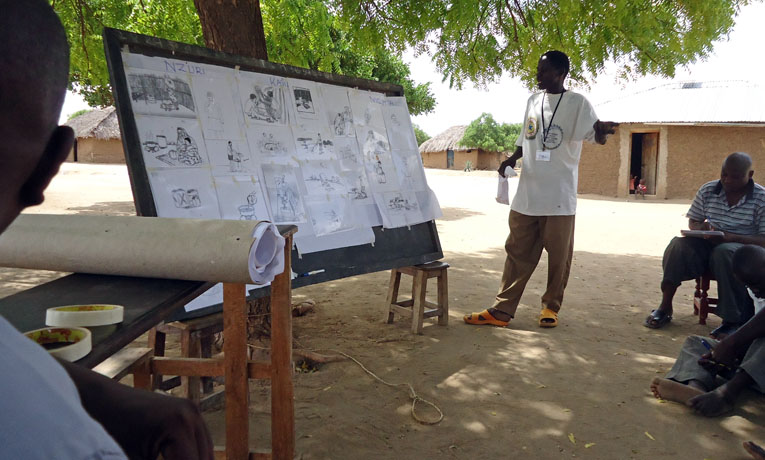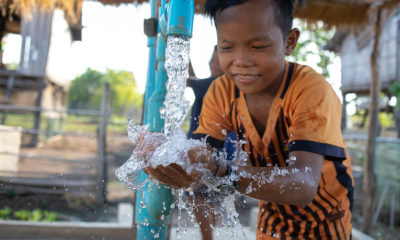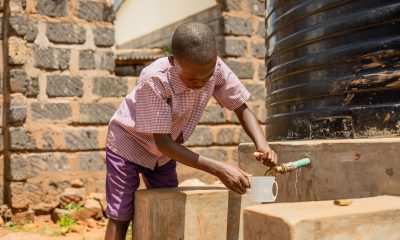By Timothy Carter, Samaritan’s Purse Water, Sanitation and Hygiene program manager in Tana River County, Kenya
There are now three latrines in the community of Boji, Kenya. While the number itself is small, when you consider the fact that this community had never used a latrine before, the figure becomes a little more encouraging.
During my visit to this small village in Tana River County a few months ago, I was encouraged to find the three latrines under construction and nearing completion. Samaritan’s Purse had recently provided health and hygiene training for the community health workers and water/sanitation committee members. In less than two months time, we were excited to find a glimmer of hope as the long process of community transformation began.
For Hussein Komora and the people of Boji, the concept of latrine construction is not a novel idea. They had received health and hygiene training on more than one occasion from various organizations and government offices. However, despite the apparent high level of awareness, the community still practiced open defecation.
Following the Participatory Hygiene and Sanitation Transformation (PHAST) training provided by Samaritan’s Purse, Komora began to take the first steps to transform his community. Komora is the chairman of the volunteer community water and sanitation committee and has mobilized his fellow committee members to construct three model latrines. They hope to set an example that others will follow to create lasting change in their community.
When asked why they have never constructed latrines despite previous training, he responded that it has never been presented in such a good way to instigate change. The participatory approach used by Samaritan’s Purse allows the group to determine its own problems and develop its own solutions to hygiene and sanitation needs.

“Before we didn’t value latrines even though we knew about them,” Komora said. “Information has become power. Our community now understands the importance of using latrines and that we have the power to change everything,”
In addition to the sanitation improvements, Komora reported that they have also stopped going to the traditional healer when their children fall sick. They now realize the necessity of receiving medical treatment at a clinic.
Although change does not happen overnight, Komora and the residents of Boji have taken the first step to producing real transformation in their community.





